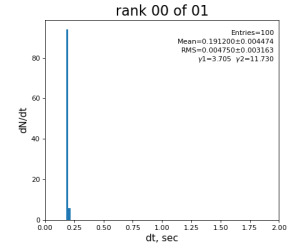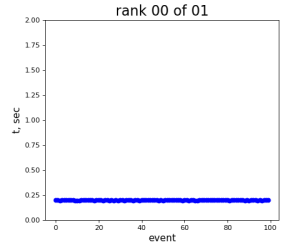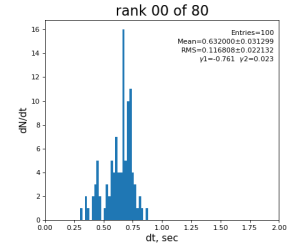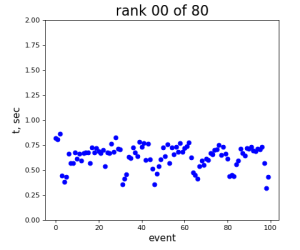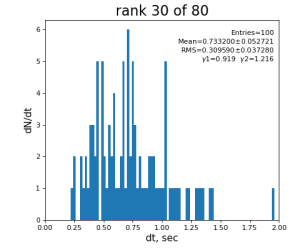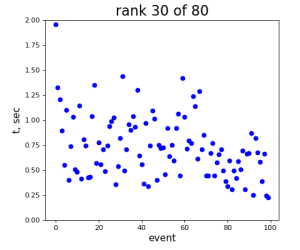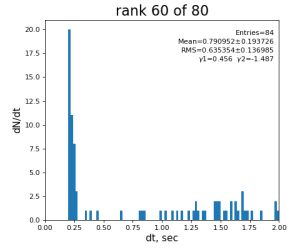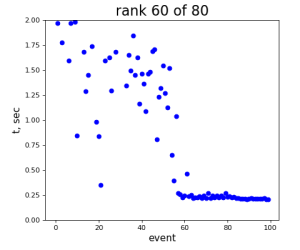Page History
...
- bad single-to-multicore scaling issue has nothing to do with particular algorithm, it is common problem for any algorithm
2024-01-16
...
Test for simulated events
Time consuming code
| Code Block | ||||
|---|---|---|---|---|
| ||||
def time_consuming_algorithm():
sh2d = (1024,1024)
sh3d = (3,) + sh2d
a = random_standard(shape=sh2d, mu=10, sigma=2, dtype=np.float64)
b = random_standard(shape=sh3d, mu=20, sigma=3, dtype=np.float64)
gr1 = a>=11
gr2 = (a>9) & (a<11)
gr3 = a<=9
a[gr1] -= b[0, gr1]
a[gr2] -= b[1, gr2]
a[gr3] -= b[2, gr3] |
Results
Single core processing
80-core processing for ranks 0, 30, and 60
...
2024-01-16 Test Summary
- runing on sdfmilan031 - shows minor ~ 5% the mean time difference between 1-core and 80-core processing is larger
2024-01-17 Test for simulated events with minor modifications
...
| Code Block | ||||
|---|---|---|---|---|
| ||||
def time_consuming_algorithm(a, b):
gr1 = a>=11
gr2 = (a>9) & (a<11)
gr3 = a<=9
t0_sec = time()
a[gr1] -= b[0, gr1]
a[gr2] -= b[1, gr2]
a[gr3] -= b[2, gr3]
#med = np.median(a)
return time() - t0_sec |
Results
Single core processing
80-core processing for ranks 0, 30, and 60
2024-01-17 Test Summary
- if random array generation is excluded from time measurement, the mean time difference between 1-core and 80-core processing is larger
- the main contribution to time difference comes from reserved host...
- sdfmilan047 - looks like extremely "time-noisy" in multi-core processing...
- sdfmilan031 - in previous test looks pretty "calm"
...
Overview
Content Tools
